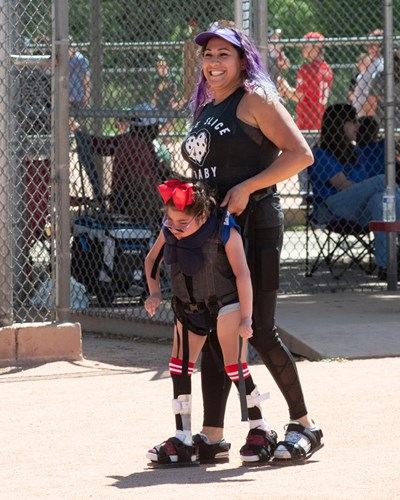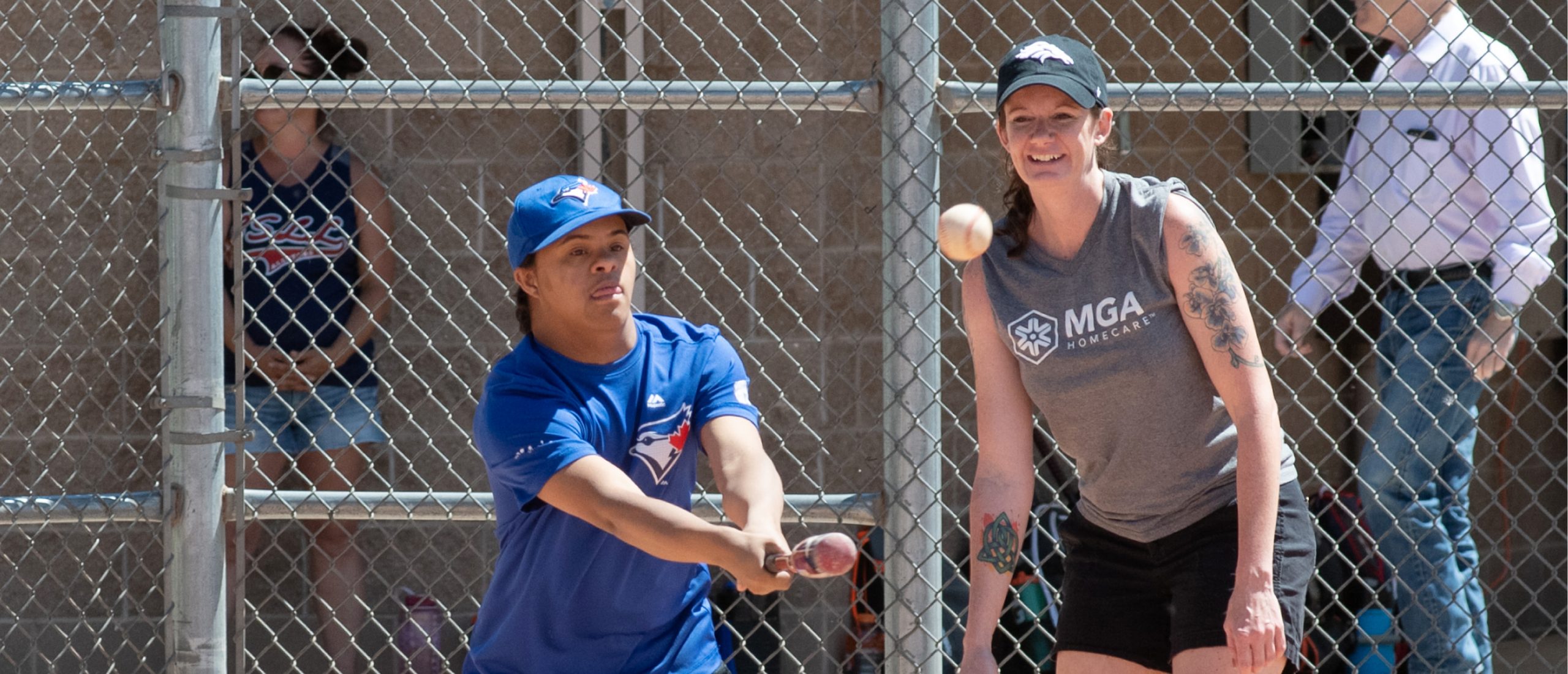Where Inclusivity is the Name of the Game
Playing team sports is a fantastic way for children to learn good sportsmanship, improve physical fitness, and build lasting friendships. While regular physical activity is important for everyone, it is especially crucial to reduce the health risks some kids battle due to mobility limitations and low muscle tone.
Equally important as fitness goals, uplifting coaches and supportive athletes can greatly bolster confidence in special kids. Adaptive sports not only benefit those requiring extra help, but also their coaches, teammates, and competitors.
Thanks to an ever-increasing awareness of the importance of inclusion, there are numerous options for youth with cognitive disabilities or medical complexities to explore sports and recreation. Finding the right sport for your child, as well as a team that embraces athletes of all ability levels, is a complex task. Where to begin?
As far as determining the right sport for your child, the sky is the limit. In the right environment with a compassionate coach, paraplegic youth can play adaptive baseball and basketball, and kids with spina bifida or cerebral palsy can learn to cheerlead and dance. Start with your child’s interests, and go from there. Remember that it’s normal for all children to want to explore a few different sports before settling on something they feel excited about.
Getting Started
The National Center for Physical Activity and Disability is a helpful resource that offers a searchable database of hundreds of fitness professionals, adaptive sports programs, and camps for children with physical and mental disabilities. You can search by zip code to find programs of interest in your area.
Horseback Riding
Adaptive horseback riding, also known as hippotherapy, promotes balance, posture, core strength, and confidence. Because the motion of the horse stimulates the brain to sense movement and adjust balance, this is a popular sport for people with neurological challenges. Truly, though, the physical and emotional benefits of working with horses are universal.
Baseball
 If your child is a fan of America’s favorite pastime, baseball is a great way to improve gross motor skills and hand-eye coordination. To start, look into the Miracle League and the Little League Challenger Division®. Both are adaptive divisions of youth baseball leagues that remove common barriers for children with mental and physical disabilities. Miracle League athletes are even paired with “buddies” to provide mentorship.
If your child is a fan of America’s favorite pastime, baseball is a great way to improve gross motor skills and hand-eye coordination. To start, look into the Miracle League and the Little League Challenger Division®. Both are adaptive divisions of youth baseball leagues that remove common barriers for children with mental and physical disabilities. Miracle League athletes are even paired with “buddies” to provide mentorship.
Cheerleading
Does your child love to perform for an audience? If so, then cheerleading may be the right fit. The Sparkle Effect is a non-profit offering mentorship and training to school-based cheerleading teams to integrate special needs athletes into the squad. Start with a conversation with the cheerleading coach at your child’s school.
Football
If football sparks your child’s interest, research Pop Warner’s Challenger Division. It provides the framework for local Pop Warner teams to offer a structured flag football program for participants with special needs. Modified rules make the game non-competitive, safe, and most importantly, fun for the athletes.
Soccer
AYSO VIP and US Youth Soccer TOPSoccer are both soccer programs dedicated to providing quality soccer experience for players with intellectual/emotional challenges or mobility limitations. You may also want to look into power soccer, where athletes use power chairs on an indoor soccer court.
Several organizations offer adaptive teams in multiple sports. Disabled Sports USA offers adaptive programs in dozens of sports, from archery to yoga. KEEN Sports, while done in a group setting, is a more tailored approach to helping special athletes meet physical fitness goals.
If you don’t find programs in your area that cater exclusively to special needs athletes, don’t get discouraged. There are many mainstream youth sports leagues that welcome players with mental and physical challenges to participate on their teams. Before signing up, reach out to ask if there are any coaches with past experience or a particular interest in adaptive sports for kids like yours. Word of mouth and feedback from other parents, or even therapists, can also help streamline your search.
Working Together with MGA
Once your child has decided on a sport to pursue, talk to their MGA Homecare physical therapist about how future sessions can augment their team experience. Discuss therapies that will help them gain core strength, flexibility, and gross motor coordination specific to their sport of choice. This will not only improve their athletic skills but will also help keep them safe from injury. In some cases, it may be appropriate for your child’s PT to accompany your child to practice and games.
Adaptive recreation is an ideal alternative for families who aren’t ready to commit to the competition schedule of team sports. Many municipal parks and recreation programs have adaptive recreation categories for both youth and adults. Classes are usually offered seasonally, with each course lasting 6-8 weeks. This allows participants access to a variety of experiences year-round. Your child could try bowling and Zumba in the fall, dance and tumbling in the spring, and martial arts and swimming for the summer.
Check your local parks & recreation department for current course schedules and registration information. If your child is on the autism spectrum, look for a Certified Autism Center (CAC) designation. This credential means that program employees have had education and sensitivity training related to working with individuals with autism.
Depending on your child’s level of ability and independence, an aide or caregiver may be required to accompany them to class. Again, this would be an excellent opportunity to involve your child’s MGA Homecare therapist or caregiver in helping your child have a positive, safe experience while meeting their fitness goals.

